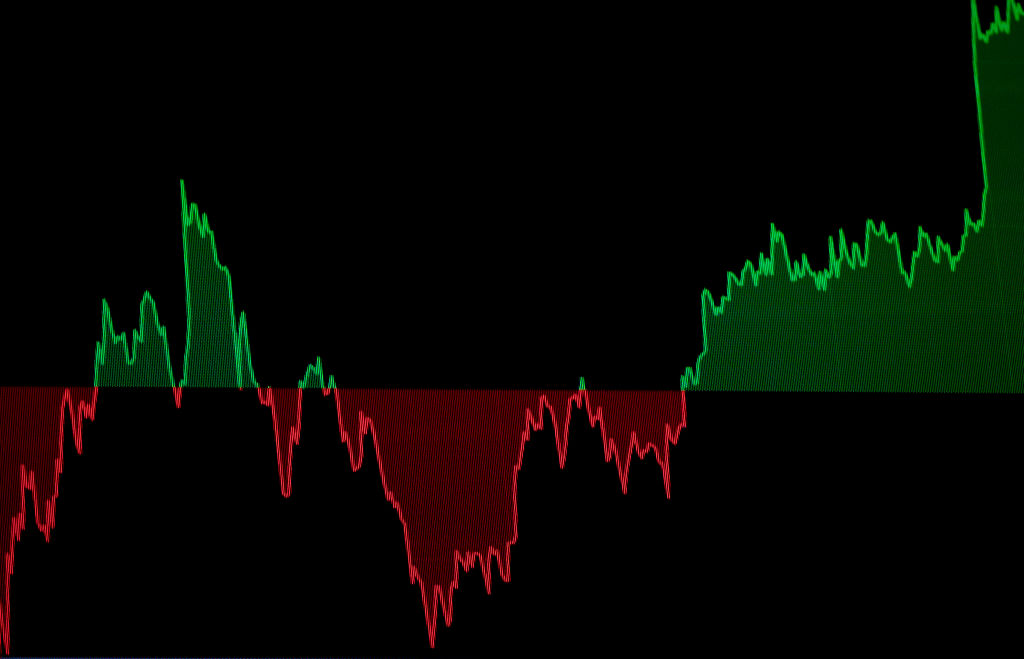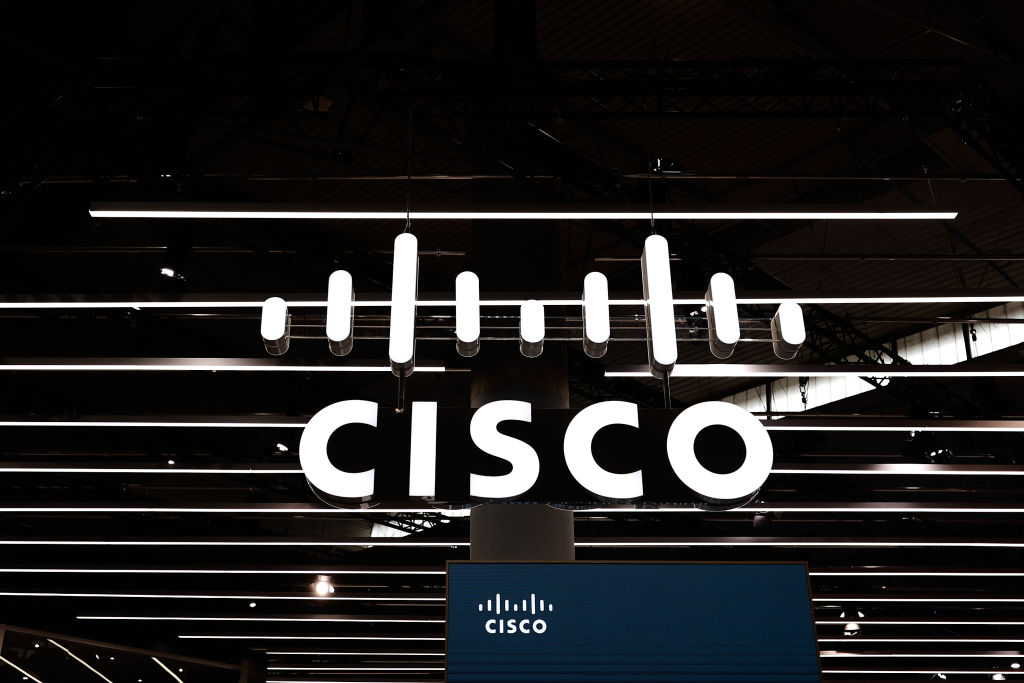A Go-Anywhere Fund
Legg Mason Partners Capital cuts across company sizes and investment styles.
Profit and prosper with the best of Kiplinger's advice on investing, taxes, retirement, personal finance and much more. Delivered daily. Enter your email in the box and click Sign Me Up.
You are now subscribed
Your newsletter sign-up was successful
Want to add more newsletters?

Delivered daily
Kiplinger Today
Profit and prosper with the best of Kiplinger's advice on investing, taxes, retirement, personal finance and much more delivered daily. Smart money moves start here.

Sent five days a week
Kiplinger A Step Ahead
Get practical help to make better financial decisions in your everyday life, from spending to savings on top deals.

Delivered daily
Kiplinger Closing Bell
Get today's biggest financial and investing headlines delivered to your inbox every day the U.S. stock market is open.

Sent twice a week
Kiplinger Adviser Intel
Financial pros across the country share best practices and fresh tactics to preserve and grow your wealth.

Delivered weekly
Kiplinger Tax Tips
Trim your federal and state tax bills with practical tax-planning and tax-cutting strategies.

Sent twice a week
Kiplinger Retirement Tips
Your twice-a-week guide to planning and enjoying a financially secure and richly rewarding retirement

Sent bimonthly.
Kiplinger Adviser Angle
Insights for advisers, wealth managers and other financial professionals.

Sent twice a week
Kiplinger Investing Weekly
Your twice-a-week roundup of promising stocks, funds, companies and industries you should consider, ones you should avoid, and why.

Sent weekly for six weeks
Kiplinger Invest for Retirement
Your step-by-step six-part series on how to invest for retirement, from devising a successful strategy to exactly which investments to choose.
Brian Posner was a young hotshot portfolio manager at Fidelity Investments in the 1990s. He left to manage money at Credit Suisse Asset Management, then co-founded a hedge fund.
Last year, Posner rejoined the mutual fund world when he became chief executive of what's now called ClearBridge Advisors, a firm with $110 billion in assets that used to run Smith Barney's stock funds. ClearBridge is now part of Legg Mason (which turned over management of Smith Barney's bond funds to its Western Asset Management unit). But Posner was eager to keep an active hand in fund management, so he co-manages Legg Mason Partners Capital (symbol SCCAX for class A shares) with Brian Angerame.
This is a flexible, go-anywhere fund -- an approach Posner labels "very liberating" for a fund manager with his experience. So his relatively concentrated portfolio of 40 stocks cuts across company sizes and investment styles. Posner calls himself a value investor, but as with his Legg Mason colleague Bill Miller, it's clear that he's a value investor who has embraced technology investing.
From just $107.88 $24.99 for Kiplinger Personal Finance
Become a smarter, better informed investor. Subscribe from just $107.88 $24.99, plus get up to 4 Special Issues

Sign up for Kiplinger’s Free Newsletters
Profit and prosper with the best of expert advice on investing, taxes, retirement, personal finance and more - straight to your e-mail.
Profit and prosper with the best of expert advice - straight to your e-mail.
In looking for attractive stocks, Posner focuses on a business' ability to generate cash. His first stop is to measure free cash flow (operating earnings plus depreciation and other non-cash charges minus the capital expenditures necessary to maintain a business) and compare this figure to enterprise value (market value plus net debt). He notes that he deploys this tangible method of valuing a company whether it's a fast-growing technology company or a slower-growing energy or finance business.
For instance, after he took the reins at LM Partners Capital in July 2006, he made Cisco Systems (CSCO) one of the fund's largest positions (Posner says he totally overhauled the portfolio within a month of taking over). "A year ago,the question was, could Cisco grow revenues more than 5%," he recalls. "The probability was yes."
More importantly, he correctly projected that Cisco's cash return -- free cash flow relative to revenues -- would be much brisker than revenue growth. Cisco and IBM (IBM), another holding, epitomize a technology industry that Posner says has "grown up" since the late 20th century and now focuses more on capital allocation and cash returns than on simply growth.
Posner's largest holding is American Express (AXP), which he reckons is mistakenly viewed and valued as a credit-card company. "It's a processing company with financial operations," he says. He sees it as a company with a towering return on equity (a measure of profitability), low capital requirements and modest exposure to credit risk -- and therefore an attractive business in which to invest.
The story behind Accenture (ACN), another top-ten holding, is similar. It's usually labeled a technology or software company, but it's really a consulting business with huge returns on equity, modest capital needs and strong cash generation. Accenture, the leading IT consultant, strikes Posner as a business that will reward a long-term holding period.
Posner shows his eclectic investing style with a large position in energy stocks, including Anadarko Petroleum (APC) and Diamond Offshore Drilling (DO). He thinks we may be early in a bullish hydrocarbon cycle marked by growing demand from emerging markets and supply constraints. "Over the course of history," he says, "[petroleum] cycles are very long. Until three or four years ago, there was a 15-year down cycle."
Legg Mason Partners Capital returned 17% over the past year through August 24. That edges Standard &Poor's 500-stock index by one quarter of a percentage point. The fund's A shares impose a front-end sales charge of 5.75%, and B and C classes levy fat ongoing 12b-1 fees. But if you invest through a financial adviser, you may be ableto gain access to the fund with the load waived.
Profit and prosper with the best of Kiplinger's advice on investing, taxes, retirement, personal finance and much more. Delivered daily. Enter your email in the box and click Sign Me Up.
Andrew Tanzer is an editorial consultant and investment writer. After working as a journalist for 25 years at magazines that included Forbes and Kiplinger’s Personal Finance, he served as a senior research analyst and investment writer at a leading New York-based financial advisor. Andrew currently writes for several large hedge and mutual funds, private wealth advisors, and a major bank. He earned a BA in East Asian Studies from Wesleyan University, an MS in Journalism from the Columbia Graduate School of Journalism, and holds both CFA and CFP® designations.
-
 Quiz: Do You Know How to Avoid the "Medigap Trap?"
Quiz: Do You Know How to Avoid the "Medigap Trap?"Quiz Test your basic knowledge of the "Medigap Trap" in our quick quiz.
-
 5 Top Tax-Efficient Mutual Funds for Smarter Investing
5 Top Tax-Efficient Mutual Funds for Smarter InvestingMutual funds are many things, but "tax-friendly" usually isn't one of them. These are the exceptions.
-
 AI Sparks Existential Crisis for Software Stocks
AI Sparks Existential Crisis for Software StocksThe Kiplinger Letter Fears that SaaS subscription software could be rendered obsolete by artificial intelligence make investors jittery.
-
 AI Unwind Takes 2% Off the Nasdaq: Stock Market Today
AI Unwind Takes 2% Off the Nasdaq: Stock Market TodayMarkets are paying more and more attention to hyperscalers' plans to spend more and more money on artificial intelligence.
-
 Dow Rises 313 Points to Begin a Big Week: Stock Market Today
Dow Rises 313 Points to Begin a Big Week: Stock Market TodayThe S&P 500 is within 50 points of crossing 7,000 for the first time, and Papa Dow is lurking just below its own new all-time high.
-
 Dow Dives 797 Points as Government Opens: Stock Market Today
Dow Dives 797 Points as Government Opens: Stock Market TodayThe process of pricing and re-pricing realities old and new never stops, and next week promises to be at least as exciting as this week.
-
 Dow Climbs 327 Points, Crosses 48,000: Stock Market Today
Dow Climbs 327 Points, Crosses 48,000: Stock Market TodayMarkets are pricing the end of the longest government shutdown in history – and another solid set of quarterly earnings.
-
 Stock Market Today: Stocks Slip After Powell Talks Rate Cuts
Stock Market Today: Stocks Slip After Powell Talks Rate CutsThe main indexes closed lower Thursday after Fed Chair Powell said there's no rush to cut rates.
-
 Cisco Stock: Why Wall Street Is Bullish After Earnings
Cisco Stock: Why Wall Street Is Bullish After EarningsCisco stock is lower Thursday despite the tech giant's beat-and-raise quarter, but analysts aren't concerned. Here's what you need to know.
-
 Cisco Leads Dow Stocks After Earnings, Job Cuts: What to Know
Cisco Leads Dow Stocks After Earnings, Job Cuts: What to KnowCisco Systems is the best Dow Jones stock Thursday after the tech giant beat earnings expectations and announced a new round of layoffs.
-
 Stock Market Today: Stocks End Wild Week With a Win
Stock Market Today: Stocks End Wild Week With a WinPalantir Technologies and Sweetgreen were two notable gainers Friday, while Intel continued to fall.